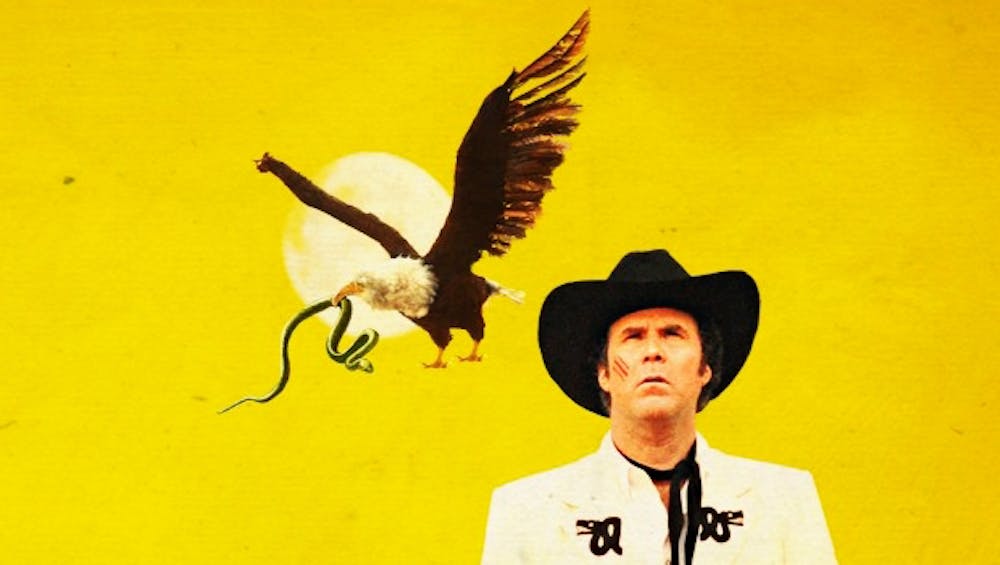Street: You are the king of improv. Did you still get to improvise in this film, even though it was in Spanish? WF: Not so much. Yeah, it was a little difficult. The main challenge for me, since I’m not fluent in Spanish, was to make sure that I didn’t want the joke of this movie to be that I spoke Spanish poorly, so I was really focused on having as good of a pronunciation as I possibly could, and then of course memorizing in a foreign language is a whole other aspect as well, so it drastically reduced moments for verbal improvisation. I had to rely on little physical moments and reactions and things like that.
Street: Is it harder to come across as funny in another language? WF: We wrote the script in English first and then it was translated, so I always had an exact comprehension of what I was saying, and once you know what you’re saying, you can put the right emphasis in the right places. Plus, the whole telenovela style and genre is so over–the–top that it was fairly easy to mimic and put yourself in that kind of zone. But as different as it was to begin, I just knew that the more dramatic I could be, the more serious I could be, that would probably play funnier than the fact that I’m speaking in Spanish.
Street: I know you thought a Spanish–language comedy would be funny, but I have to know, are you a fan of the telenovela? WF: Um, I wouldn’t say I’m a huge fan. I only watch them from, I mean, every weekday from 11 in the morning untill 4 in the afternoon. So, I’m not like a crazy person about it. Uh, no, I’m not. I keep getting asked, “What are your favorite telenovelas?” and, sheepishly, I have to say I really don’t know any of them. I just basically got this idea from the thing I’m sure we all have done where you’re just flipping through the channels and you stop for a second, and you’re like, “What is going on here? What is this show? Oh, it’s a Spanish soap opera. Ok, this is pretty intriguing.” And that’s kind of how I got the idea. But, uh, no, I’m not well–versed in them at all.
Street: Beyond just being a parody of a telenovela, it’s a really stylish, stylistic movie -— I’m thinking of the amazing dream sequence and some of the cinematography. Is that part of what attracted you to the feature, or is that something that developed as it was being produced? WF: Well, when you say 'attracted me to the feature' — I was in on the ground floor. We all kind of created it. But what you’re talking about in terms of the cinematic style, that was what Matt Piedmont brought to the table when we brought him onboard. He said, “I’ve been watching some of these 1960s, early 70s Mexican westerns, and I’d love to kind of mimic that.” He was able to use these really old lenses from Panavision, so yeah, all of that was a really conscious choice to give it this kind of throw–back feel visually.
Street: I guess this movie is pretty different from all the other movies you’ve filmed, so how do you think the hardcore Will Ferrell fans out there are going to react to this film? WF: Well, I mean, I think it’ll be a pleasant surprise because you literally don’t know where the movie’s going at any moment, and you really have to pay attention to the subtitles — you’re forced to lock into the story. I’m very proud of it in the sense of its absurdist quality, in the same way that we did Anchorman. You have a similar feel in a way, where we kind of threw all the rules out the window. So I think people who are coming to see something different will be fully satisfied.

